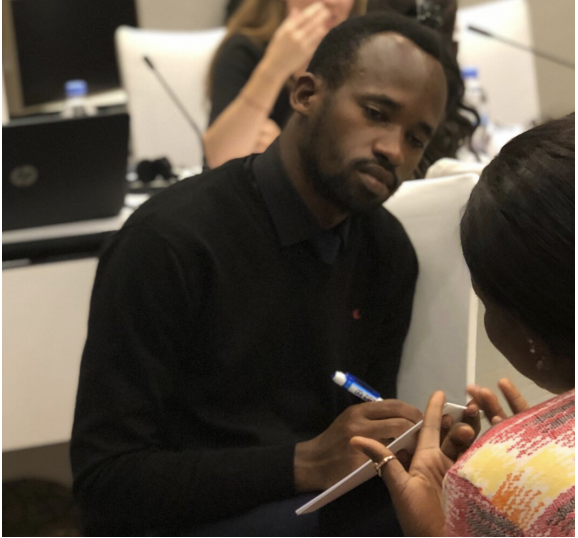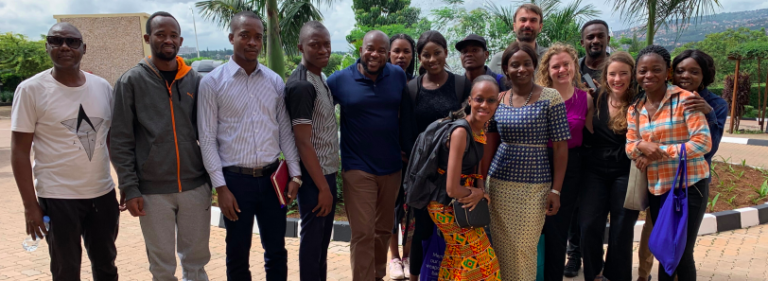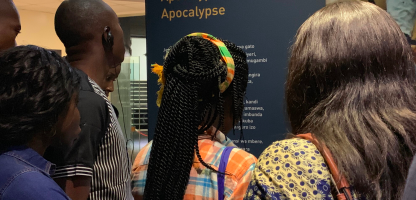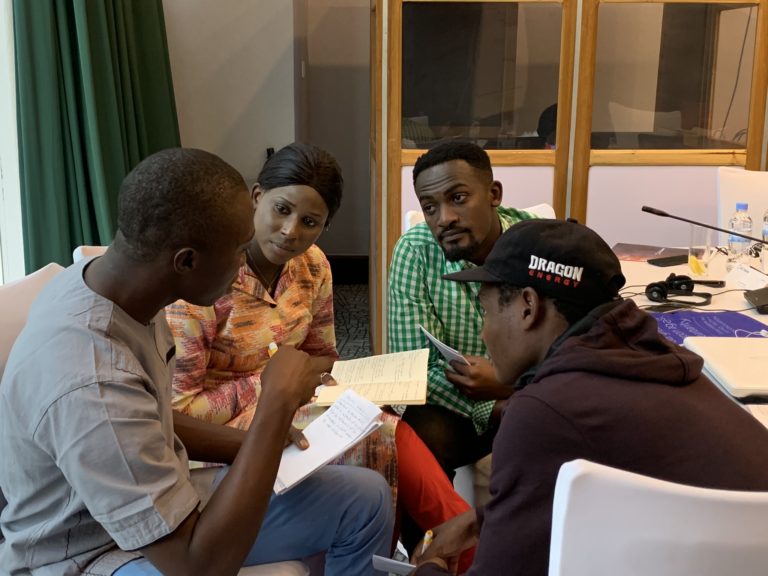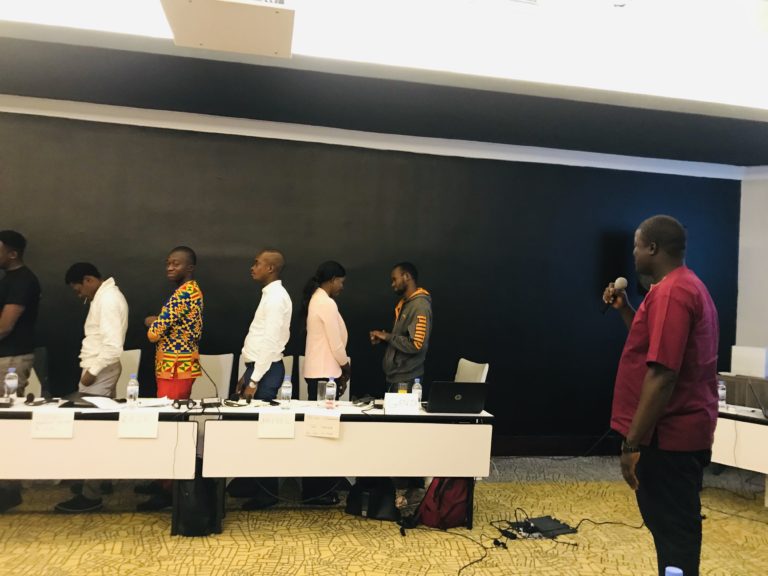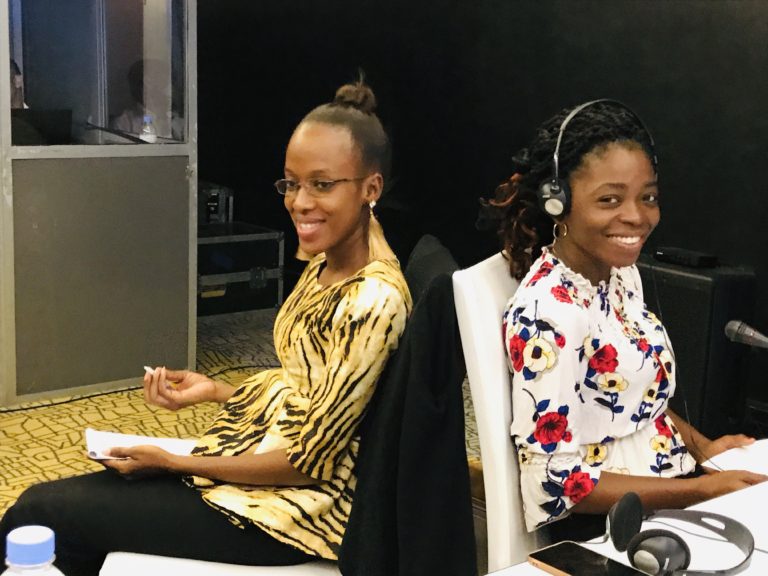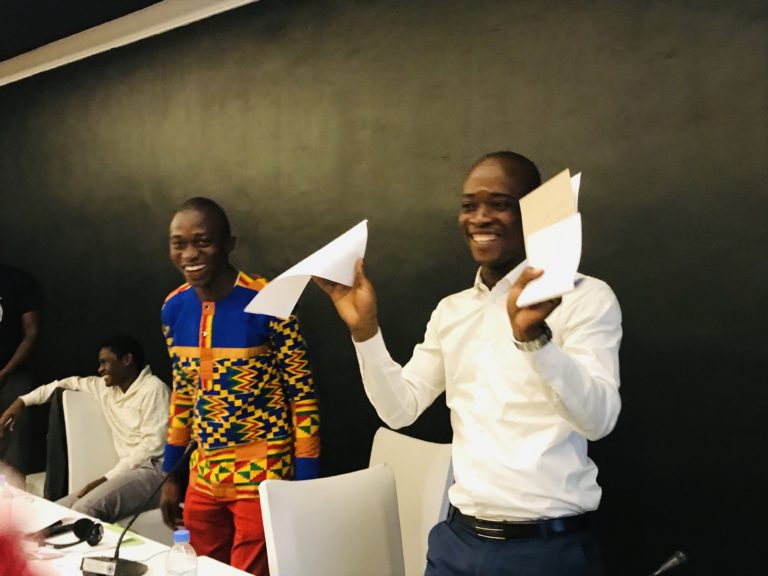African Youth TJ Academy
Building on social justice movements in Africa centered on truth, justice and remembrance, the African Youth Transitional Justice Academy (AYTJA) brought together young African activists and civil society leaders from multiple countries in transition to support exchange and learning among the next generation of transitional justice practitioners. Through trainings and pilot projects, participants gained a deeper understanding of transitional justice mechanisms and how youth can play a role in these processes, promoting truth-telling, accountability and reconciliation among their peers.
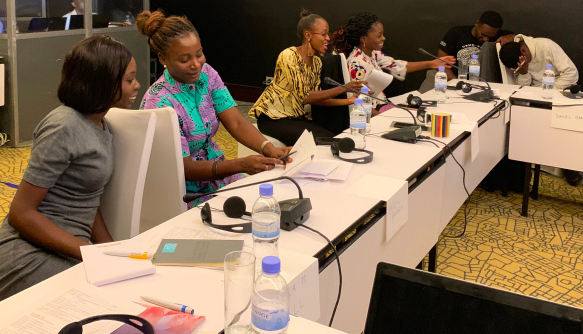
Context
With 65% of the total population of Africa below the age of 35 years, Africa is the most youthful continent in the world. Since some African countries with particularly large youth populations have experienced recent violent conflicts, such as Mali and Central African Republic (CAR), there is a tendency for media and official discourse to reduce the role of youth in conflict to that of either instigator or victim. This project instead highlighted the potential of youth as peace-builders, advocates, and active participants in transitional justice processes. While there have been several international summits and training programs that enable civil society organizations (CSOs) to engage youth in transitional justice-related programming, the African Youth Transitional Justice Academy focused on building the capacity of youth themselves, providing a unique and essential opportunity to shape an informed and engaged citizenry capable and willing to hold governments accountable.
Project Details
The GIJTR’s work in conflict and post-conflict countries has shown that in order to establish lasting peace, youth must be a key component in advocating for truth and justice efforts. They are, however, often unable to engage in transitional justice processes in a sustained way because they lack the foundational knowledge related to issues of truth, justice and reconciliation. In many countries, a deep knowledge of transitional justice is lacking and mainly limited to students at university law faculties.
The GIJTR’s African Youth Transitional Justice Academy was designed to address this gap in current programming. During its first cohort in 2019-2020, the Academy brought together African youth activists and civil society members from countries that are currently experiencing conflict or violence with activists and civil society members from countries that have undergone transitional justice processes. The overall aim of the program was to build participants’ recognition of the role that youth can play in transitional justice processes and to empower a cadre of youth activists and civil society actors to engage in and raise awareness on issues related to truth, justice and reconciliation.
Project Impact
Build the capacity of young civil society actors across Africa to lead transitional justice programming
Through two trainings, ten activists and civil society actors under age 35 from Côte d’Ivoire, The Gambia, Guinea, Mali, Rwanda, South Africa and South Sudan gained a practical understanding of transitional justice in the African context, and the role that youth can play in driving transitional justice processes.
Support for sustainable pilot projects
GIJTR partners provided financial and technical support to participants to design and implement pilot projects in their home countries, based on community consultations, that addressed local truth, justice and reconciliation needs with a particular focus on marginalized groups.
Provide training in participatory methodologies
In addition to covering theoretical concepts related to transitional justice, GIJTR partners led training sessions with participants on the use of participatory methodologies to engage their peers in truth, justice and reconciliation programming through tools like dialogue and the creative and performing arts.
Create opportunities for exchange and networking among young African activists
The Academy created a space for young African activists from multiple contexts to exchange ideas, learn from each other’s experiences, and build relationships to continue supporting each other as they continue their work in pursuit of truth, justice and accountability.
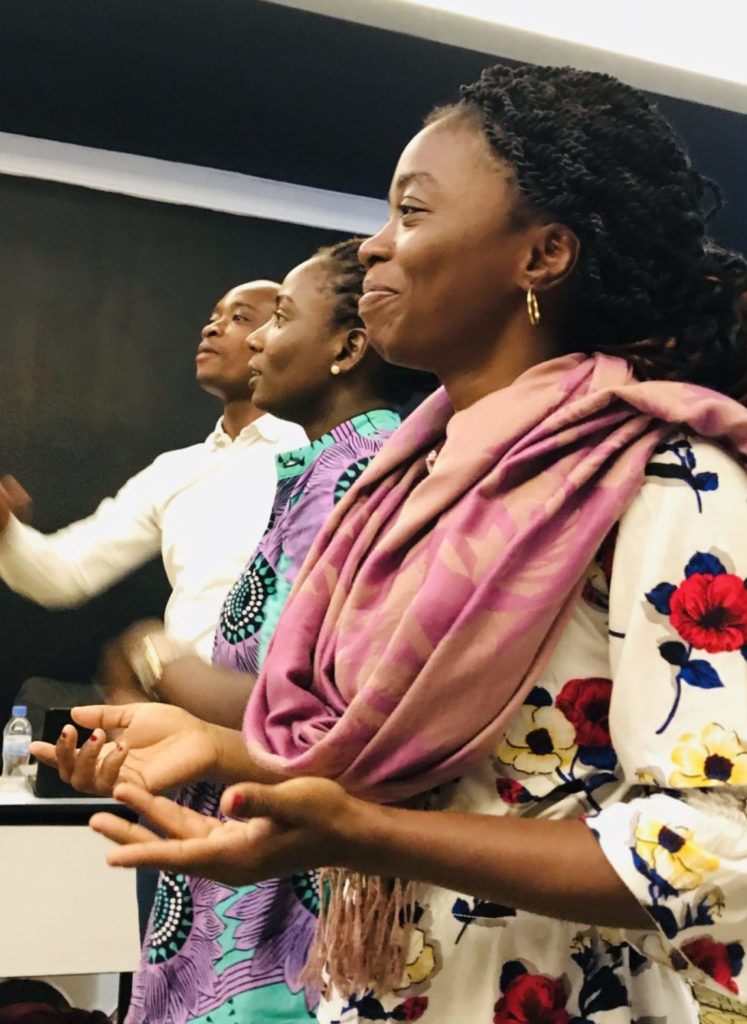
Transitional Justice in Action
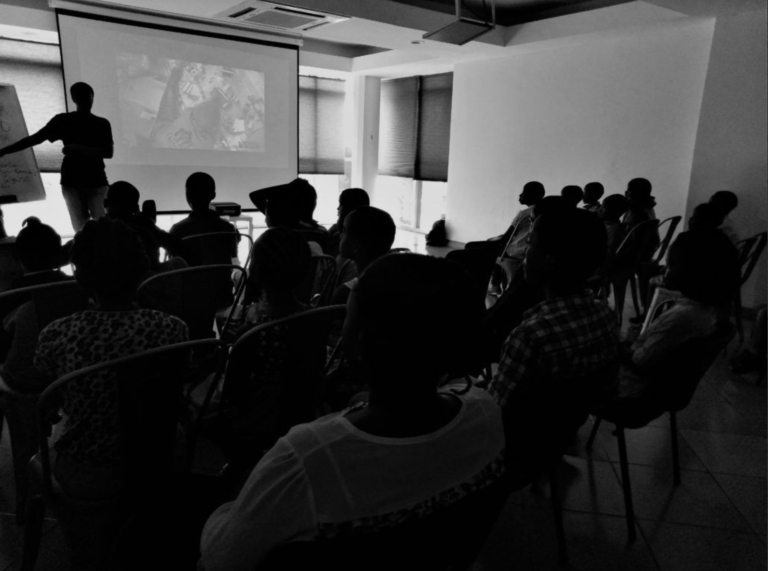
Pilot Projects
As part of the AYTJA, GIJTR offered financial and technical support to the participants to develop small projects to address issues related to justice, truth and reconciliation in their communities. These sub-grants allowed the participants to put into practice the lessons and ideas they exchanged throughout the Academy trainings and to pilot new initiatives when they returned home. The following report highlights the results of the participants’ projects — all innovative programs launched and implemented by young activists with an eye toward engaging youth on key transitional justice issues.

